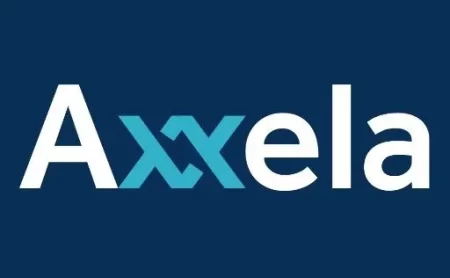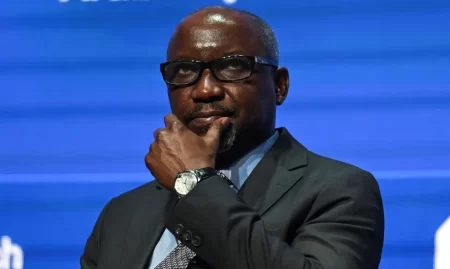05 January 2015, Lagos – With President MuhammaduBuhari’s recent commitment to reduce Nigeria’s greenhouse gas emission by 20 per cent in 2020, Ejiofor Alike writes on the need for the federal government to develop an actionable policy to encourage Nigerians to switch over from the use of dirty fuels such as kerosene, firewood and coal to the use of liquefied petroleum gas, better known as cooking gas

The use of kerosene, firewood and coal as domestic fuel is associated with a lot of health hazards, in addition to the destruction of the ecosystem and the climate change effect, according to health experts and environmentalists.
For instance, one of the latest reports of the World Health Organisation (WHO) showed that the use of firewood, coal and kerosene as domestic fuel causes indoor pollution, which accounts for over four million deaths globally every year.
According to WHO, of the three billion people worldwide that cook and heat their homes using open fires, coal and simple stoves burning biomass – wood, animal dung and crop waste; a total of 4.3 million people die prematurely from illness attributable to the household air pollution from cooking with solid fuels.
The report further revealed that more than 50 per cent of premature deaths among children under five are due to pneumonia caused by particulate matter (soot) inhaled from household air pollution; while 3.8 million die prematurely annually from non-communicable diseases, including stroke, ischaemic heart disease, Chronic Obstructive Pulmonary Disease (COPD) and lung cancer are attributed to exposure to household air pollution.
Of the 4.3million that die yearly due to domestic pollution, the world body noted that 12 per cent deaths are due to pneumonia; 34per cent from stroke; 26 per cent from ischaemic heart disease; 22per cent from chronic obstructive pulmonary disease (COPD), and six per cent from lung cancer.
Nigeria ranks high in the use of kerosene, firewood and coal as domestic sources of energy.
Despite local and global interventions to address the problem of Nigeria’s local under-utilisation of LPG as domestic fuel, the country has remained one of the lowest consumers of the product in sub-Saharan Africa and the highest consumer of firewood, kerosene and other dirty fuels.
The World Bank and the World LP Gas Association (WLPGA) had in 2003 developed a strategic roadmap for the country but this measure could not promote the growth of LPG market due to lack of a deliberate policy on the part of government to promote the use of the product.
The poor utilisation of LPG degenerated to the extent that by 2007, the product was virtually disappearing from the Nigerian market, following the collapse of the refineries, the country’s main supplier.
The development forced an intervention by former President Olusegun Obasanjo, who directed the Nigeria LNG Limited to set aside a certain volume of its production for the local market.
This step, which was government’s greatest intervention in the history of the LPG sector in Nigeria, successfully resolved the supply challenges as NLNG initially set aside 100,000 metric tonnes yearly for the local market.
However, it has failed to encourage the use of LPG as the government has continued to promote the use of other dirty fuels, particularly, kerosene.
While other countries such as India, Indonesia and several others have sincedeveloped actionable policies to switch over their citizens from the use of dirty fuels to LPG, the federal government has continued to pay subsidy on kerosene to encourage the use of the product at the detriment of LPG, which is safer, cleaner and a more environmental-friendly product.
Even the LPG supplied by the NLNG is sold in the domestic market at international market price, despite the fact that it is Nigeria’s natural endowment that is produced locally.
Buhari’s commitment on greenhouse gas emission
However, as the country’s contribution to address the issue of climate change, which has become a global issue, President Buhari recently committed to cut its greenhouse gas emission by 20 per cent from year 2020.
The Presidential spokesman, Mr. Femi Adesina had also revealed that President Buhari had approved the submission of the country’s Intended Nationally Determined Contributions (INDC) to address climate change to United Nations Framework Convention on Climate Change (UNFCCC), during the recent meeting of the world leaders in Paris for the United Nations Climate Change conference, or COP 21.
According to Adesina, the Federal Government’s policy to address climate change, as espoused in the country’s INDC, commits to 20 per cent unconditional and 45 per cent conditional Greenhouse Gases (GHGs) emission reduction post 2020.
According to him, the country’s INDC was approved on November 26 and submitted to the UNFCCC on November 28, ahead of the conference.
The action plan reaffirms President Buhari’s commitment to an economic transformation which places inclusive, green growth as key priority for this administration, the statement said.
He said President Buhari was fully aware of the acute threat that climate change poses to Nigeria’s development through flooding, desertification and insecurity, stressing that many of these accrue from weather-related natural disasters.
Reduction of GHG emission
Though the role of LPG in the INDC prepared by the federal government to address the issue of climate change could not be ascertained, it is evidently clear that the promotion of the use of the product above other fuels will help the government to realise its 2020 aspiration of reducing GHG emission by 20 per cent.
The dirty smokes from coal, firewood and kerosene causes health hazards and alters the natural composition of the climate, thus causing climate change.
Also the felling down of trees for firewood has resulted to desertification and other weather-related disasters.
So, any measures adopted by the government to encourage the use of LPG and discourage the use of kerosene and other dirty fuels will contribute significantly to reduce greenhouse gas emission as committed by President Buhari.
At the recent fifth annual conference of the Nigeria LPG Association held in Lagos recently with the theme “LPG: The Future is Here,” the President of the Nigerian LPG Association, Mr. DayoAdeshina insisted that LPG would play a significant role in realising President Buhari’s commitment in Paris.
“LPG plays significant role in achieving that if we can make that switch from the dirty fuels like kerosene, firewood and coal to LPG. Nigerians need to be aware of the role LPG plays. We have been saying it for years but nobody listens. But the time has come for the government to take control; and to take charge of the awareness campaign to switch people if they truly want that 20 per cent reduction,” he said.
He urged the federal government to adopt the Indonesian model by providing cylinders to help Nigerians to switch over to the use of LPG.
In his speech, Director/Head of Import and Export Operations at Borkir International Company Limited, Mr. SahadiTukurhowever said for LPG to penetrate deeply into the Nigerian market, the problem of logistics should be addressed.
“If you have LPG but you don’t have logistics to deliver it, it is as good as not having the product. We have to agree that logistics is the key in the business. Nigerians are very resilient. Roads are bad and we are having difficulty accessing money from the banks but we should keep on moving. We will be there one day,” Tukur said.
Also speaking, Mr. Femi Fanoiki of Longview Gas called for the construction of LPG terminals in other parts of the country to reduce over-dependence on Lagos and the attendant risks and costs of trucking product from Lagos to other parts of the country.
“We had expected additional terminals in other parts of the country but everybody still comes to Lagos to load LPG,” he added.
In his remarks, Mr. DitanOyekan of TSL Logistics said investment in infrastructure was key to the growth of LPG consumption in the country.
“We have now learnt that it takes eight days to do a complete cycle from Kano to Lagos. The Apapa problem will not go away in three months. Railway is another option but the rail infrastructure is dilapidated. So, how are we going to prevent these challenges from stopping our business? Even though it may take time to pay back but investment in infrastructure is the way to go,” Oyekan explained.
Removal of kerosene subsidy
In addition to the challenges of getting LPG cylinders and accessories, the subsidy paid on kerosene by the federal government to encourage the use of the product by subsidising the cost is also one of the greatest threats to the use of LPG in the country.
To encourage the use of LPG, Adeshina has also cautionedthe government against subsidising kerosene when the country has cheaper, cleaner and safer alternative fuel.
Also speaking at the recent Nigeria LP Gas conference, a Professor at University of California, Berkley, Dr. Kirk Smith, said that ailments related to dirty fuel like kerosene and firewood would kill more Nigerians if nothing is done to encourage the use of cleaner fuel for cooking, powering machines, fuelling vehicles, among others.
Delivering a paper entitled: “LPG and the Health of the World’s Poor,” Smith revealed that when firewood is used as domestic fuel, it produces smoke that is equivalent to the amount produced by 400 cigarettes per hour.
Challenges of cylinders/accessories
About 10 years ago, the only source of supply of LPG in this country was through the refineries. About the same time, the only LPG terminal in Lagos was the one built by Pipeline Products and Marketing Company (PPMC), a subsidiary of the Nigerian National Petroleum Corporation (NNPC). But other investors have since built more terminals – NIPCO Plc has 4,500metric tonne-capacity terminal in Lagos. Techno Oil Limited, Navgas, Forte Oil and other private investors have also built LPG terminals and invested heavily to grow the domestic market, thus effectively resolving the supply challenges. Techno Oil for instance, has distributed 20,000 units of gas stoves at discounted prices in the last two years. Though LPG is available in Nigeria today, access to cylinders and accessories has continued to hinder the growth of domestic consumption. The cheapest standard 12.5kg cylinder in the market is sold at N8, 500.
When Nigerian companies were manufacturing cylinders within the country, the cost of cylinder was below N2, 000. But the two companies that manufactured cylinders locally have collapsed due to inadequate supply of electricity. The cost of importing cylinders and accessories is very high due to the high tariff and this has hindered LPG development.
The President of the Nigerian Association of Liquefied Petroleum Marketers (NALPGAM), Mr. Basil Ogbuanu has noted that the country is not even consuming up to 10 per cent of what it is supposed to consume.
“Algeria is about 20 million people. By world LPG record, Algeria consumes more than Nigeria that is over 160 million people,” he added.
Ogbuanu called on the federal government to remove the tariffs paid on imported cylinders and accessories to make them affordable for people to switch over to the LPG.
It is therefore time for the present administration to develop a policy to discourage the use of kerosene and encourage the use of LPG, thus saving Nigeria from the dangers of indoor pollution and effectively contributing to the global effort to reduce GHG emissions, in addition to channeling the huge kerosene subsidy funds on the development of critical infrastructure.
- This Day



